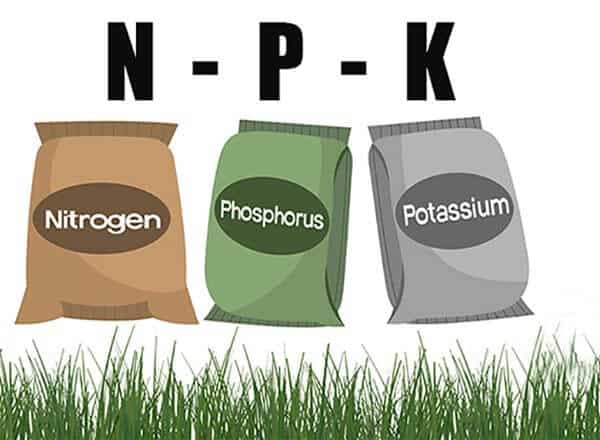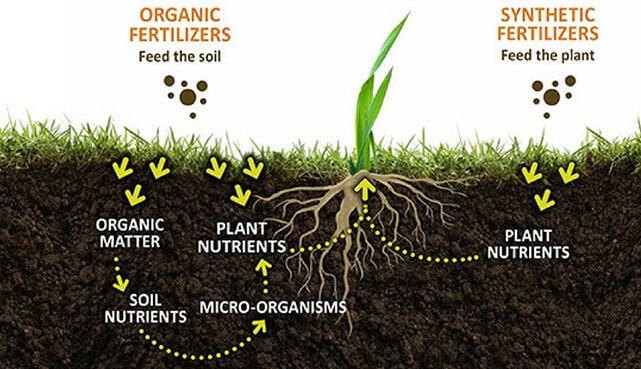Thomas K Owen
New Member
What kind of fertilizer for grass
1.Elements Fertilizer
Grass needs enough amount of nutrients, water and sunshine to sustain life and grows healthily and green. The importance of fertilizer is the same as water, air, and temperature in the soil.
Most fertilizers all contain three different nutrients: Nitrogen, Phosphorus, and Potassium.

Nitrogen
Nitrogen plays a critical role in the process of photosynthesis, It promotes healthy leaf growth by encouraging the production of chlorophyll, which is a chemical vital to photosynthesis.
Not only does it help with that though, but it also can help plants fight off damaging pests. Plants that are deficient in nitrogen grow poorly and develop yellowing leaves.
Phosphate
Phosphorus is an essential macro-element, required for plant nutrition. And is involved in the metabolic processes responsible, such as photosynthesis, energy transfer and synthesis and breakdown of carbohydrates.
The presence of phosphorus in the soil help turf grows lush and thick because it promotes strong root growth. Plants with a phosphorous deficiency will experience stunted growth.
Potassium
Potassium helps regulate plant metabolism and affects water pressure inside and outside of plant cells to keep the lawn healthy and balanced.
For these reasons, potassium is critical to plant stress tolerance. This affects all aspects of lawn and garden well-being, from cold and drought tolerance to disease and pest resistance.
2.Bio-Fertilizer

Biological fertilizer is the new substance that contains living microorganisms applying on seeds, leaf or soil.
They are of paramount importance in cycling nutrients in the lawn soil. They act as a long-term fertilizer and health system for your lawn.
There are two main different types of soil microbes. Each of these microbe types has a different job to boost lawn health.
Bacteria
Bacteria are the final stage of breaking down nutrients and releasing them to the root zone for the plant. Proper bacteria can create a good soil environment and control root diseases for the lawn.
Such as Bacillus Subtilis, a species of bacteria with strong soil adaptability. It has a good effect on colonizing grassroots and inhibiting harmful pathogens.
Biodiversity in the soil is also essential for daily grass management, Beneficial fungus has a good effect on building healthy root systems, maximizing the use of fertilizer and improving soil conditions.
Fungi
The most popular fungal agent is Mycorrhizae and Trichoderma harzianum, which are already commercially used.
Mycorrhizae form a mutually beneficial relationship with grassroots, stimulating lawns to grow thick and lush.

Trichoderma harzianum helps improves soil structure and inhibits fungal soil-borne pathogens, including Fusarium (wilts), Rhizoctonia (root rot), Sclerotinia (blight), Drechslera tritici-repentis (Leaf Spot).
3.Organic Fertilizer

Organic fertilizers contain organic material(mainly manure, compost, or humic acid), which has the below benefits for plants:
1.Elements Fertilizer
Grass needs enough amount of nutrients, water and sunshine to sustain life and grows healthily and green. The importance of fertilizer is the same as water, air, and temperature in the soil.
Most fertilizers all contain three different nutrients: Nitrogen, Phosphorus, and Potassium.

Nitrogen
Nitrogen plays a critical role in the process of photosynthesis, It promotes healthy leaf growth by encouraging the production of chlorophyll, which is a chemical vital to photosynthesis.
Not only does it help with that though, but it also can help plants fight off damaging pests. Plants that are deficient in nitrogen grow poorly and develop yellowing leaves.
Phosphate
Phosphorus is an essential macro-element, required for plant nutrition. And is involved in the metabolic processes responsible, such as photosynthesis, energy transfer and synthesis and breakdown of carbohydrates.
The presence of phosphorus in the soil help turf grows lush and thick because it promotes strong root growth. Plants with a phosphorous deficiency will experience stunted growth.
Potassium
Potassium helps regulate plant metabolism and affects water pressure inside and outside of plant cells to keep the lawn healthy and balanced.
For these reasons, potassium is critical to plant stress tolerance. This affects all aspects of lawn and garden well-being, from cold and drought tolerance to disease and pest resistance.
2.Bio-Fertilizer

Biological fertilizer is the new substance that contains living microorganisms applying on seeds, leaf or soil.
They are of paramount importance in cycling nutrients in the lawn soil. They act as a long-term fertilizer and health system for your lawn.
There are two main different types of soil microbes. Each of these microbe types has a different job to boost lawn health.
Bacteria
Bacteria are the final stage of breaking down nutrients and releasing them to the root zone for the plant. Proper bacteria can create a good soil environment and control root diseases for the lawn.
Such as Bacillus Subtilis, a species of bacteria with strong soil adaptability. It has a good effect on colonizing grassroots and inhibiting harmful pathogens.
Biodiversity in the soil is also essential for daily grass management, Beneficial fungus has a good effect on building healthy root systems, maximizing the use of fertilizer and improving soil conditions.
Fungi
The most popular fungal agent is Mycorrhizae and Trichoderma harzianum, which are already commercially used.
Mycorrhizae form a mutually beneficial relationship with grassroots, stimulating lawns to grow thick and lush.

Trichoderma harzianum helps improves soil structure and inhibits fungal soil-borne pathogens, including Fusarium (wilts), Rhizoctonia (root rot), Sclerotinia (blight), Drechslera tritici-repentis (Leaf Spot).
3.Organic Fertilizer

Organic fertilizers contain organic material(mainly manure, compost, or humic acid), which has the below benefits for plants:
- Provide essential slow-release & safe nutrients for turf growth
- Help improve soil condition, retain moisture and nutrients
- Stimulate soil microorganisms’ growth, help release the nutrients to ensure soil’s fertility.
